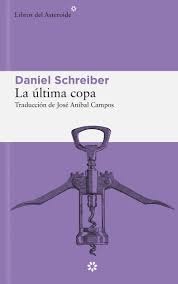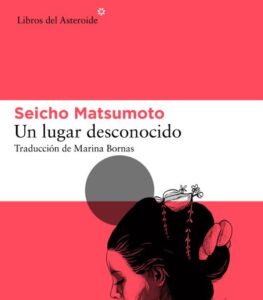
Original language: German
Original title: Sober
Translation: José Aníbal Campos
Year of publication: 2020
Valuation: can be read
I recognize that there is a classic of the alcoholic literature that left me absolutely cold, some decades ago. The legend of the holy drinker seemed tired, almost naive and very predictable. The nuance on opinions that time brings would still make me reconsider a new reading. But, in general, I recognize that I usually give books about addictions a chance, perhaps, who knows, because (with the exception of some excesses of youth) I have never fallen into them, perhaps it is more fair to say that I have not fallen into the that we approve as harmful. Let’s agree that it is a practical aspect of literary consumption: putting ourselves in the shoes of those who have experienced what we have not.
In this sense, The last drink would represent a fairly effective update of perspective on alcoholism. That of a young man with a certain professional recognition – writer, journalist – who falls into the vice progressively but consciously and, also consciously, makes the determination to get out of it and, for that matter, to share that experience, that articulated attempt. exit from addiction. Here we could talk about the deeply rooted social hypocrisy that also worked until a few decades ago regarding tobacco. Because alcohol is harmful but beer brands sponsor music festivals, football teams, events of all kinds. What can we say about the somewhat classist erotica of the wine cellars and visits to wineries, as if one couldn’t get high with just three glasses of wine, after comprar the cultural and traditional alibi of gastronomy and as if its alcohol content were admissible because we comply with the culinary rites of our sophisticated civilization. Let’s not even talk about high-proof liquors.
Anyway, I was getting off topic. Alcohol is rooted in our society, it has an industry that evades regulations to promote itself, expand and wash its conscience, and the death tolls only emerge from time to time. Schreiber offers his experience, a somewhat standardized experience where what usually happens happens: subtle social pressure, easy access, public or private consumption without raising suspicion, recognition of addiction, seeking help, assessment of the risk of relapse, etc., etc. etc
And that is the problem; the “etc.” That “etc” comes to mean that everything read here can be read in any other context, in another situation and with other protagonists, many of them, already in place, with worse life prospects than a young professional from a nation that is a power. of the West. In other words, Schreiber could talk about alcohol or how he has a toothache or how lazy he feels about going to the supermarket on the weekend and everything would seem so correct, so functional, and inconsequential, as if there weren’t many others that happen to him. things that readers don’t have to be interested in. The autofiction thing we talked about here years ago. And season that experience by disguising it as an essay, and let that essay evolve and flirt with, argh, self-help at the moment the author offers their experience for those who can learn or be inspired by it…
Source: https://unlibroaldia.blogspot.com/2024/01/daniel-schreiber-la-ultima-copa.html


